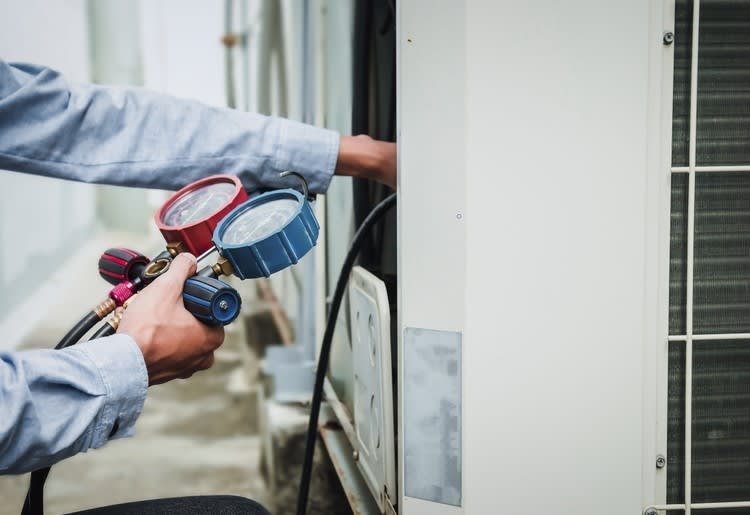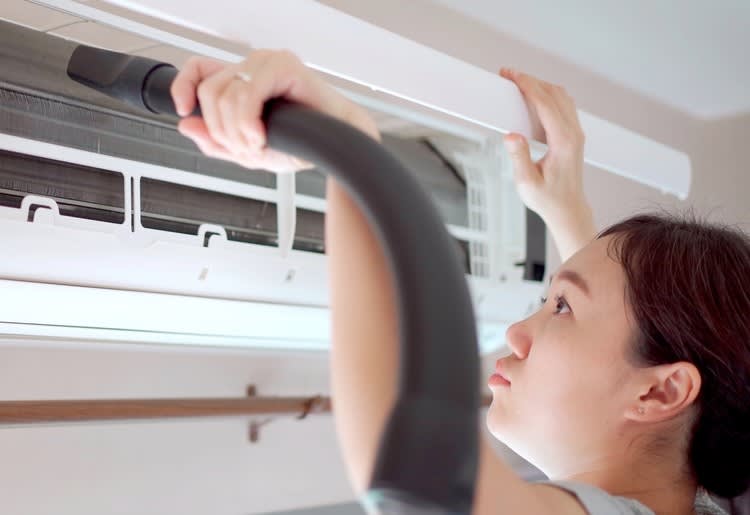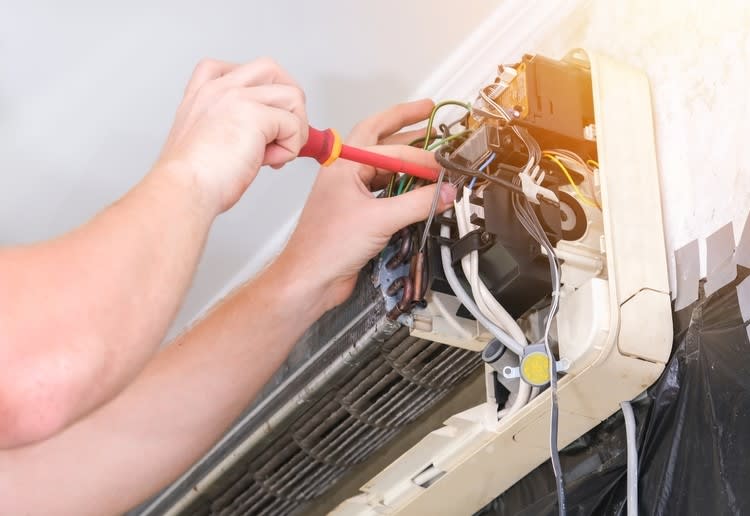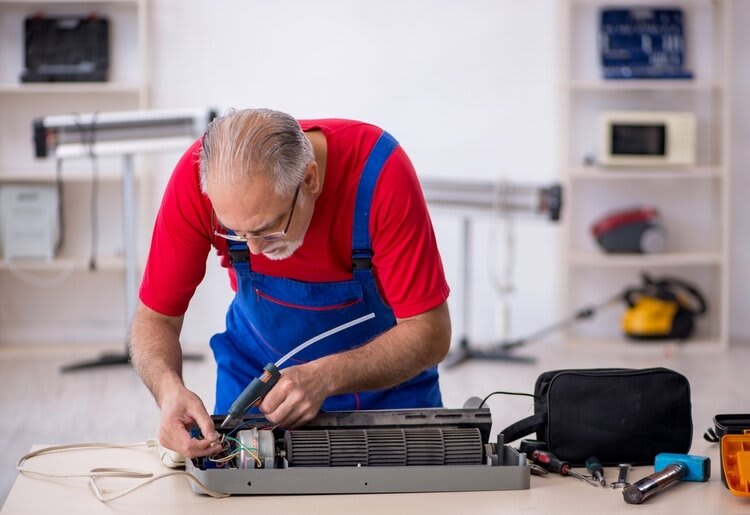A broken AC compressor is enough to ruin anyone's day, especially during the warm summers when you need cooling the most.
However, there are easy ways to troubleshoot and know if you can cheaply fix the problem yourself. So, in today's post, we'll equip you with 10 technician-approved troubleshooting techniques to get your AC compressor up and running again in no time.
» Don't want to deal with the costs and hassles of new home repairs? Check out our top 10 picks for home warranty companies.
1. Check the Power Supply First
This may be an age-old cliché for troubleshooting most things, but... have you check if it's plugged in? If your AC compressor isn’t working, then you should definitely check the power supply to make sure it's plugged in and the circuit breaker hasn’t tripped.
If everything looks good on that front, then the next thing you'll want to do is check the thermostat. If it's not set to "cool," then that could be the reason why your AC compressor isn't working. Simply set the thermostat to "cool" to see if it does the trick.
2. Check for a Clogged Filter
Clogged filters can make your AC consume 5% to 15% more energy than it should. Over time, dust and dirt accumulate on the filters, restricting airflow and causing them to overheat.
To clean or replace a clogged filter (you can order new ones online or buy them from a hardware store), first consult your owner’s manual for instructions. In most cases, you can clean the filters by removing and rinsing them off with water. Just allow them to dry completely before putting them back in place.
» Not sure why your air conditioner isn't working? Here are the 10 most common AC problems.

3. Check for Frozen Coils
Often when your AC runs overtime during the summer, the coils can freeze, causing the compressor to overheat and eventually break down.
To thaw out frozen coils, turn off the unit, use a hair dryer to melt the ice, then turn the unit back on to see if it works again. If the coils keep freezing, it could be a sign that they’re damaged or there’s a bigger issue that requires the help of a technician.
4. Check for Low Refrigerant Levels
If your AC unit is low on refrigerant, the compressor won't effectively work to cool your home.
To check refrigerant levels, consult your owner’s manual for instructions on how to do so safely. If you're low on refrigerant, you'll need to have it professionally refilled. In most cases, low refrigerant could even be a sign that your unit came with too little refrigerant to begin with.
» Need repair-coverage for your HVAC units? Here are the best home warranty companies for AC and heating units.
5. Check for Leaks in the System
Leaks in the AC system are one of the most common AC problems. This can also cause low refrigerant levels, which can break the compressor.
To check for leaks, look for any signs of moisture around fittings and hoses. If you find a leak, you'll need a professional to repair it before adding more refrigerant to the system.
6. Check for Obstructions Around the Unit
If there are any obstructions around your AC units, like leaves or other debris, they can prevent proper airflow and cause the compressor to overheat.
To check for this, you should locate your AC unit (it’s most likely outside) and see if there are any objects near it. If you see an obstruction, remove it and make sure that there are at least two feet of clearance all around the unit.
» Want to prevent problems in your HVAC system? Here are the best HVAC maintenance tips for homeowners.

7. Check for Faulty Wiring
Faulty wiring can quickly break your AC compressor. To check for this, consult your owner’s manual for instructions on how to safely access the wiring. If you find any damaged or frayed wires, you will need to have them professionally repaired or replaced.
8. Check for a Dirty Condenser Coil
The condenser coil helps to transfer heat away from the compressor, so if it's dirty, it can cause the compressor to overheat.
To clean the condenser coil, turn off the unit and remove any accumulated debris or dirt. Once it's clean, turn the unit back on to see if it works properly.
» Want your new house's AC repaired at a low cost if it breaks? Try Choice Home Warranty.
9. Check the Belts
Another possible reason why your AC compressor isn't working is because the belts may be worn out or damaged.
To check this, simply remove the access panel and take a look at the belts. If they don't appear to be damaged, try tightening them a bit to see if that does the trick. If they're damaged, then you'll need to replace them with new ones.
10. Check for Wear and Tear
Over time, normal wear and tear can take its toll on an AC compressor. If you think that this may be the cause, consult with a professional technician who can inspect your unit and let you know if it needs to be replaced.
Just remember, the best way to keep your AC unit running smoothly is to schedule regular preventive maintenance with a licensed HVAC technician. They'll clean the unit, inspect all components, and proactively make any necessary repairs.

Terms and Air Conditioners
Before you call a technician (and incur a hefty repair bill), be sure to try these AC compressor troubleshooting tips first.
As with most things, it's often cheaper and easier to prevent problems before they happen. By being proactive and scheduling regular maintenance check-ups, you can avoid many common issues entirely.
» Want flexible coverage for all your house's assets? Try Select Home Warranty.

